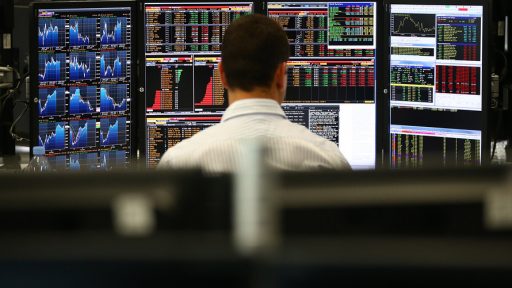- Home
- >
- Psychology of the successful trading
- >
- Five Steps to Tradе Like a Pro

Five Steps to Tradе Like a Pro

Being a professional trader is a dream many investors strive for.
It is an attainable goal that like everything else, requires a strong foundation. Here are 5 tips to becoming a full timer that you or may not have considered.
1. Have a dedicated working environment and structured work hours.
Create a space for your trading that is solely devoted to that and make sure it is suitable for your needs. What kind of computer power do you need? How many monitors will you be using? What software packages and scans will you be running? Do you want CNBC or other channels on a television?
Next, devote a set amount of time to trading every day. Whether it’s the 6.5 hours that the U.S. market is open, or 1 hour at the open/close, or 2 hours before the open and after the close, find a time that works for your trading and stick with it like a real job.
2. Have regular performance reviews and keep detailed records.
Trading on a professional basis is a very competitive, bottom line business. Think of it as being a professional athlete.
In addition to benchmarks of indexes and positive returns, many firms will pit and rank their traders against each other on a monthly, quarterly, semi-annual and annual basis. The top performers are richly rewarded, while the laggards and money-losers will quickly be cut from the roster in many cases. The top traders are often given leeway and other perks (such as showing up late) that won’t be given to those who haven’t or aren’t proving themselves.
Evaluate your own trading performance with such a ruthless eye. If you aren’t making your weight over an extended time frame, pull yourself off the trading floor so to speak, and re-evaluate. Test new methods and concepts in paper trades.
3. Find a profitable niche.
This is an obvious, but difficult, concept. Most traders and firms will specialize in one area of the markets where they find a significant “edge”, and attempt to milk that area as long as possible. There are very few jack-of-all-trades these days in terms of actual day-to-day trading.
A rule of thumb here is that the least number of people that understand a certain trading niche, the more profit potential & edge there is in it. For example, think of the number of people who trade mutual funds vs. stocks vs. options – it gets progressively lower. Often the more complex an area is, the more reward can be potentially garnered from it. Think of the very complex derivatives that we saw during the mortgage boom. These were apparently so complex that many of the buyers of these (who were giant, wealthy, multi-national firms) now claim they didn’t even fully understand what they were buying!
4. Develop a network of contacts and continually upgrade your education.
Most, if not all, traders are trained in a particular method by a firm, their backers, or other experienced traders. They then implement what they’ve learned and add to it over time as they find success.
Additionally, traders develop contacts and friendships over time that allows them to find out what is the “hot” market or area, so they can move on if a certain trading niche becomes tapped out.
5. Have the proper mindset.
Trading is not for everyone. There certainly is a high burnout factor among professional traders due to the stress involved. Think of the markets as various shark tanks, with a certain number of sharks fighting for those scraps of meat.
Some of the work personality traits that will help you succeed over the long run include:
Having a thick skin, being able to remove emotions, ability to think clearly in the moment when all hell is breaking loose, analytical and creative mind.
These can be developed through experience.
 Trader Petar Milanov
Trader Petar Milanov Read more:
If you think, we can improve that section,
please comment. Your oppinion is imortant for us.











